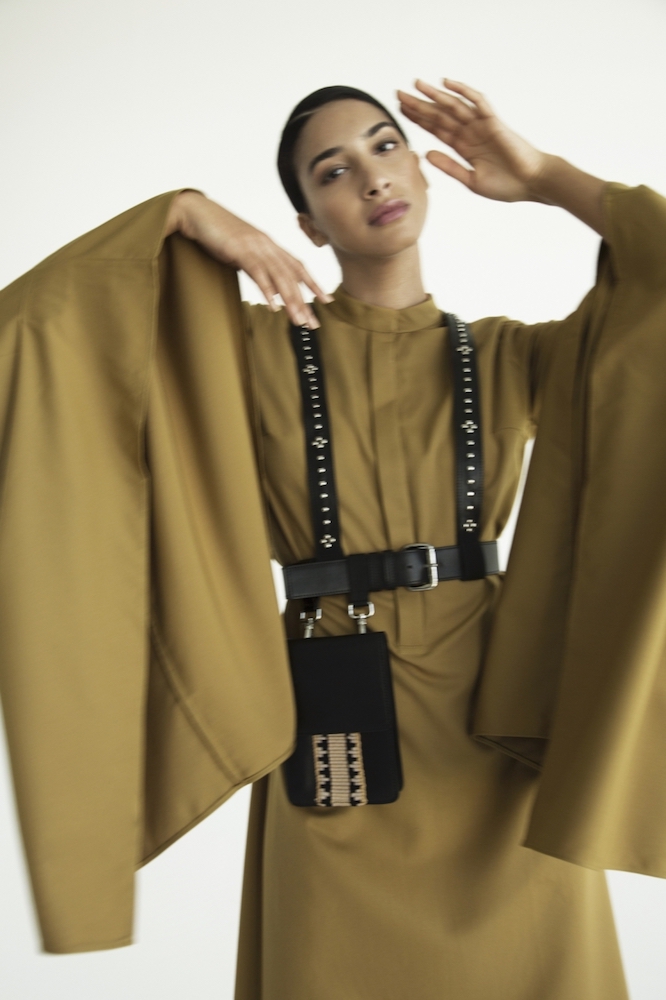DUBAI: The way Saudi entrepreneur Shahd Al-Shehail tells it, the businesses that will survive — and thrive — in the new normal will be those that offer added value. As consumers seek stronger justifications to part with their money in the coronavirus-fueled downturn, her heritage fashion label Abadia could deliver just that edge.
“I believe if we aren’t adding anything new or original to the work we’re doing, there’s no point in doing it. The world doesn’t need more clothes per se,” she said.
While developments such as online retail and drop-shipping have allowed more designers to launch their own fashion labels, business success in the sector is paradoxically harder than ever.
“Even before the pandemic, it was quite hard to set up a successful fashion brand. The market was really quite oversaturated,” said Al-Shehail.
The 34-year-old fashion designer, from Al-Mubarraz in Saudi Arabia’s Al-Ahsa region, hopes to make a difference with an ethical luxury label that marries traditional crafts with contemporary silhouettes for today’s urban nomads.

Sadu, the geometric weave characteristic of Bedouin societies across the Middle East, has been a mainstay of the line since it was launched in 2016. A recent collection reinterpreted naqda, a classic technique where thin strands of metal are embroidered onto lightweight fabrics such as silk and tulle.
Meanwhile, the farwa, a floor-length winter coat conventionally worn by men, has become the brand’s signature piece. Floaty but structured, Abadia farwas seem to echo the roles modern Middle Eastern women are carving out for themselves.
The robes have topped regional shopping lists since Jordan’s Queen Rania was photographed wearing one to her daughter’s graduation from the British military academy Sandhurst.
Yet, interwoven into every piece is an equally beautiful backstory. Abadia garments are hand-embroidered largely within Saudi Arabia’s Al-Qassim administrative region, where the company has helped to improve the livelihoods of about 45 traditional artisans, raising their income by 40 percent, Al-Shehail says.
*****
READ MORE: How Arabian design scene is moving from product to purpose
*****
“These are mostly older women who hadn’t taught their craft to the next generation because they didn’t see the economic benefit of passing on those skills,” she said.
Because regional consumers are often motivated by compassion, craftspeople experience significant income volatility. Demand peaks during Ramadan, but declines to next to nothing over the rest of the year.
“We wanted to help elevate Middle Eastern crafts in the same way that French or Italian traditions are celebrated, while at the same time safeguarding our heritage and the storytelling behind it,” Al-Shehail said.
“At a fundamental level, I believe we cannot ask artists to preserve any craft — or our heritage — if we don’t give them economic incentives to continue.”
Like everyone else in the fashion industry, Al-Shehail has battled economic problems of her own since COVID-19 appeared, clearing runways and emptying workshops and showrooms alike around the world.

“Looking at the rest of the industry, we haven’t seen that huge a decline in orders. Nor have we seen any growth, but we’ve had new orders from new geographies, particularly the US,” she said. The coronavirus has allowed her team to take a step back and think about aspects of the business that they do not usually spend time on, such as broadening their marketing outreach and developing deeper relationships with their customers.
In particular, the same long-term financial planning and calculated risk-taking that helped Abadia to break even in its first year of business will help it retain its full-time staff and freelancers.
“At the beginning of this pandemic, we sat down and forecast our business to the end of the year, that we’ll be able to keep everybody on board. We’ve always focused on growing the business organically, on making sure we never put our artisans and employees at risk,” she said.
“Every business has a different strategy, but for us the goal has been to build long-term sustainability. I don’t come from a place of liquidity and I’m not investing my dad’s money. So, it was important to define three-year, five-year and 10-year goals.
“The fashion industry is a very tough industry, it’s a very saturated industry, and it’s important to build businesses that are growing sustainably and in a financially sound way,” she said.
---------------------------
This report is being published by Arab News as a partner of the Middle East Exchange, which was launched by the Mohammed bin Rashid Al Maktoum Global Initiatives to reflect the vision of the UAE prime minister and ruler of Dubai to explore the possibility of changing the status of the Arab region.














